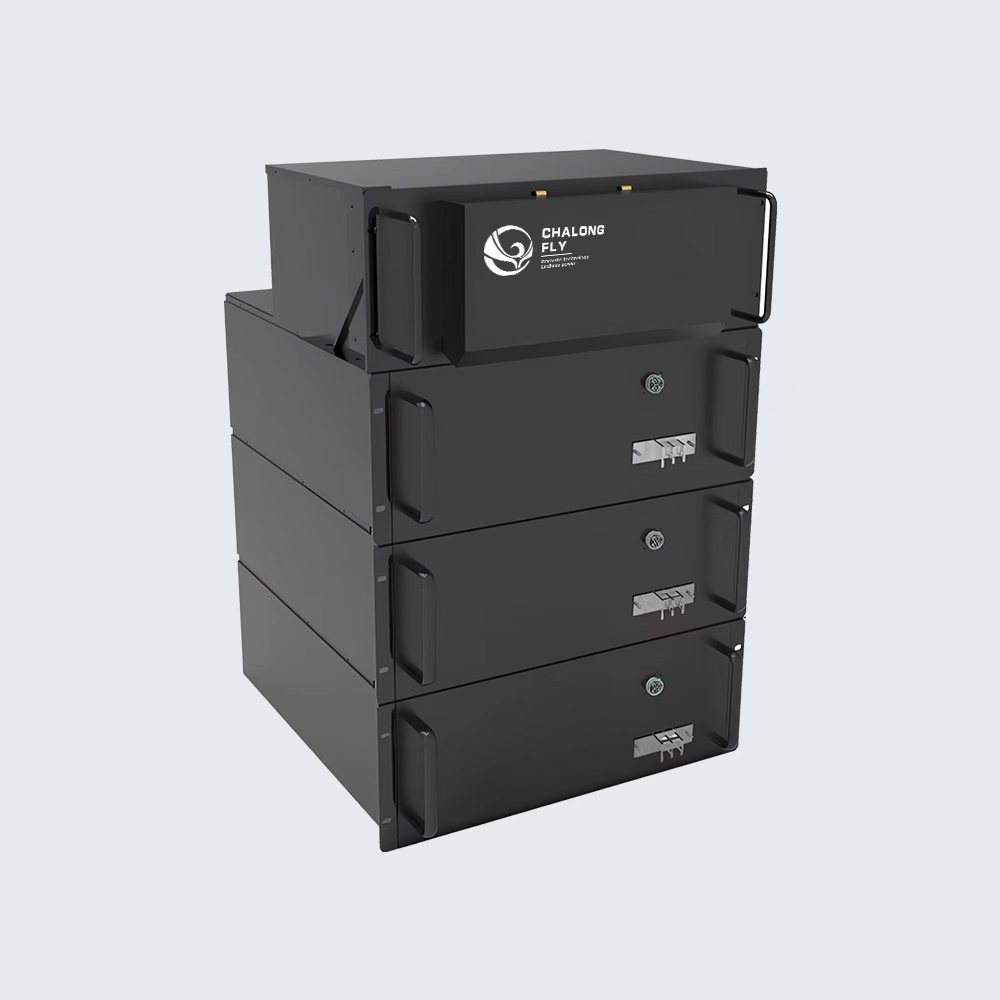

Kontak Person : Rosa Liu
Nomor telepon : +86 18975107916
ApaAPP : +8618975107916
October 30, 2025

Untuk industri Kelautan, baterai lithium bukan hanya "pilihan daya lain", melainkan peningkatan komprehensif dari sistem daya. Dengan keunggulannya yang unik dalam perlindungan lingkungan, ekonomi, kinerja, dan keselamatan, hal ini mendorong seluruh industri pembuatan kapal menuju transformasi yang hijau, cerdas, dan efisien, yang mencakup berbagai skenario aplikasi mulai dari kapal wisata kecil hingga kapal pesiar hibrida besar. Dengan kemajuan teknologi baterai yang berkelanjutan dan penurunan biaya yang berkelanjutan, tren ini akan menjadi semakin tak terhindarkan.
![]()
Parameter Baterai
Produk: Baterai Lithium Kelautan 192V100AH
Tegangan terukur: 192V
Kapasitas terukur: 100AH
Komposisi:28S15P-8 Modul
Arus pelepasan berkelanjutan:100A
Arus pelepasan puncak:150A(30s)
Komunikasi:CAN
Tingkat perlindungan:IP65
Cara pendinginan:Alami
Suhu kerja:Pengisian dan pengosongan pada -20℃-60
Pengukuran:470*510*720mm
Berat:120KG
Berat total:19.2KWH
Aplikasi:Yacht, Kelautan, Perahu, dll.
Keuntungan menggunakan baterai lithium di bidang Kelautan
1. Keuntungan Perlindungan dan Kepatuhan Lingkungan
1.1 Operasi tanpa emisi
Polusi nol lokal: Kapal listrik murni tidak menghasilkan emisi berbahaya seperti oksida sulfur, oksida nitrogen, atau partikulat selama pengoperasian, yang secara signifikan meningkatkan kualitas udara di pelabuhan, sungai pedalaman, danau, dan tempat wisata.
Pengurangan gas rumah kaca: Ketika listrik berasal dari sumber energi terbarukan, emisi karbon mendekati nol dapat dicapai di seluruh siklus hidup. Bahkan jika tenaga termal digunakan, efisiensi pembangkit listrik terpusat jauh lebih tinggi daripada mesin diesel Kelautan desentralisasi.
1.2 Kebisingan rendah dan tanpa getaran
Meningkatkan kenyamanan: Motor beroperasi sangat senyap dengan hampir tanpa getaran, memberikan lingkungan yang belum pernah ada sebelumnya yang nyaman bagi penumpang, anggota kru, dan staf di kapal. Sangat cocok untuk perahu wisata, kapal pesiar, dan yacht pribadi.
1.3 Melindungi kehidupan air:Kebisingan rendah menyebabkan gangguan yang jauh lebih sedikit terhadap kehidupan bawah air daripada baling-baling dan mesin tradisional, memenuhi persyaratan perlindungan ekologis.
1.4 Memenuhi peraturan yang semakin ketat
Pelabuhan-pelabuhan besar di seluruh dunia dan Organisasi Maritim Internasional telah menetapkan standar ketat untuk emisi dan polusi kapal selama berlabuh. Menggunakan daya baterai lithium adalah salah satu cara yang paling langsung dan efektif untuk mencapai kepatuhan.
2. Keuntungan Ekonomi
2.1 Biaya operasional telah berkurang secara signifikan
Biaya energi rendah: Biaya listrik jauh lebih rendah daripada bahan bakar diesel. Terutama ketika menggunakan listrik di luar jam sibuk untuk pengisian daya di malam hari, keuntungan biaya operasional menjadi lebih jelas.
Biaya perawatan rendah: Motor listrik memiliki struktur sederhana dan jauh lebih sedikit bagian yang bergerak daripada mesin pembakaran internal. Tidak memerlukan penggantian oli mesin, filter bahan bakar, busi, dll., yang secara signifikan mengurangi beban kerja dan biaya perawatan harian.
2.2 Efisiensi energi yang lebih tinggi
Efisiensi energi mesin diesel Kelautan tradisional biasanya antara 30% dan 40%, sedangkan efisiensi komprehensif sistem propulsi listrik dapat mencapai 80-90%. Ini berarti bahwa lebih banyak energi digunakan untuk mendorong kapal maju daripada terbuang percuma, yang secara langsung dikonversi menjadi jangkauan yang lebih jauh atau konsumsi daya yang lebih rendah.
2.3 Keuntungan biaya siklus hidup penuh
Meskipun biaya pembelian awal baterai lithium relatif tinggi, umur pakainya yang panjang (biasanya lebih dari 10 tahun, dengan ribuan siklus), biaya operasi dan perawatan yang rendah membuat total biaya mereka sepanjang siklus hidup mereka semakin kompetitif.
3. Keuntungan Kinerja dan Teknis
3.1 Kepadatan daya tinggi dan respons daya yang cepat
Baterai lithium dapat langsung menyediakan daya yang sangat besar, memungkinkan kapal mencapai kinerja akselerasi yang sangat baik. Hal ini sangat penting untuk kapal yang memerlukan start dan stop yang sering, manuver kecepatan tinggi, atau persyaratan respons daya tinggi, seperti kapal tunda dan kapal kerja.
3.2 Kepadatan energi tinggi, masa pakai baterai yang ditingkatkan
Dibandingkan dengan baterai timbal-asam, kepadatan energi baterai lithium 3 hingga 5 kali lebih tinggi. Dengan berat dan volume yang sama, ia dapat menyimpan lebih banyak energi listrik, yang secara signifikan memperpanjang jangkauan jelajah kapal listrik murni.
3.3 Tata letak yang fleksibel, mengoptimalkan desain kapal
Modul baterai dapat diatur secara fleksibel sesuai dengan struktur lambung, memanfaatkan ruang yang tidak beraturan di bagian bawah kapal dengan lebih baik, meningkatkan pusat gravitasi dan keseimbangan kapal, dan dengan demikian melepaskan lebih banyak ruang dek yang efektif.
3.4 Nyaman untuk manajemen energi cerdas
Sistem baterai lithium harus dilengkapi dengan sistem manajemen baterai canggih, yang memungkinkan integrasi yang mulus dengan jaringan pintar kapal, mencapai distribusi energi yang tepat, pemantauan status dan diagnosis kesalahan, dan meningkatkan tingkat modernisasi dan kecerdasan kapal.
4. Keselamatan dan Keandalan
4.1 Teknologi ini matang dan sangat aman
4.2 Keandalan yang kuat
Keandalan motor listrik dan sistem baterai jauh lebih tinggi daripada mesin pembakaran internal yang kompleks, mengurangi risiko kapal kandas karena kegagalan sistem daya selama navigasi.
Masukkan Pesan Anda